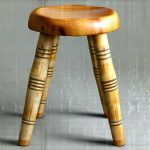Our bodies are remarkably adaptable machines, constantly adjusting to changes in routine, diet, and activity levels. This adaptability is what allows us to thrive despite variations in our daily lives. However, sometimes these adjustments can manifest in unexpected ways, leading to temporary disruptions in bodily functions. One surprisingly common phenomenon is a noticeable decrease in stool frequency following long indoor weekends or periods of reduced physical activity. It’s a complaint many hesitate to discuss, but understanding the reasons behind it – and knowing how to gently nudge things back on track – can alleviate worry and promote overall well-being. This isn’t necessarily a sign of illness; often, it’s simply a consequence of altered lifestyle factors impacting our digestive system.
The human digestive system operates like a complex conveyor belt, relying on a consistent interplay between muscle contractions (peristalsis), hydration levels, dietary fiber intake, and physical activity to move waste efficiently through the gut. When these elements are disrupted – as they often are during extended periods of inactivity or changes in eating habits typical of weekends – the natural rhythm can slow down. This slowing leads to less frequent bowel movements and sometimes a feeling of sluggishness. It’s important to distinguish between occasional fluctuations in stool frequency and chronic constipation, which requires medical attention. We’ll explore the common factors at play and offer practical strategies for managing these temporary shifts in digestive function. You may want to review top early signs from stool tests if you are concerned about changes.
The Impact of Reduced Activity & Routine Changes
Long indoor weekends often involve a significant decrease in physical activity compared to our usual weekday routines. This is perhaps the most prominent factor contributing to dropped stool frequency. Movement is crucial for stimulating peristalsis – those wave-like muscle contractions that propel food through the digestive tract. – Walking, running, even simple household chores contribute to this internal ‘massaging’ of the gut. When we spend extended periods sitting or lying down, this natural stimulation diminishes, leading to slower transit time. Imagine a conveyor belt slowing down because fewer items are being added; things simply move at a reduced pace.
Beyond physical activity, routine changes play a substantial role. Weekends often bring alterations in dietary habits. We might indulge in richer foods, less fiber-rich options, and increased snacking – all of which can affect bowel regularity. Furthermore, sleep patterns frequently shift on weekends, impacting hormonal balance and digestive function. Cortisol, the stress hormone, tends to fluctuate differently, potentially influencing gut motility. Even seemingly minor changes like a different coffee intake or altered hydration levels can contribute to this temporary disruption. It’s rarely one single factor but rather a confluence of lifestyle alterations that results in reduced stool frequency. Recognizing these shifts may call for a diet overhaul if they are frequent.
These shifts aren’t inherently negative; they’re often part of enjoying leisure time. However, recognizing their impact on our digestive system allows us to make small adjustments to mitigate any discomfort or concern. The key is understanding the connection between our lifestyle choices and bowel function. Acknowledging that this is a common experience, particularly after periods of relaxation, can also reduce anxiety surrounding it.
Understanding Gut Motility & Transit Time
Gut motility refers to the movement of food and waste through the digestive tract. This process isn’t constant; it varies based on factors like diet, hydration, stress levels, and physical activity. Normal transit time – the duration it takes for food to move from ingestion to elimination – typically ranges between 24 and 72 hours. However, this can be significantly affected by changes in routine. Reduced activity slows down motility, increasing transit time, while a high-fiber diet and adequate hydration generally accelerate it.
The colon plays a critical role in water absorption. As waste moves through the colon, water is reabsorbed into the body, solidifying stool. When transit time is prolonged (due to reduced motility), more water is absorbed, resulting in harder stools that can be difficult to pass. This contributes to the feeling of constipation and infrequent bowel movements. Conversely, faster transit time can lead to softer stools or even diarrhea. It’s a delicate balance, easily disrupted by changes in our lifestyle.
Maintaining a healthy gut motility involves prioritizing regular physical activity, staying adequately hydrated, consuming sufficient dietary fiber, and managing stress levels. These are all interconnected factors that contribute to optimal digestive function. It’s also important to listen to your body and respond to its signals – avoiding the urge to ‘push’ or strain during bowel movements is crucial for preventing complications. Paying attention to insights you can get from basic stool analysis can help in these situations.
The Role of Dietary Fiber & Hydration
Dietary fiber acts as a bulking agent in the intestines, adding volume to stool and stimulating peristalsis. There are two main types: soluble and insoluble fiber. – Soluble fiber dissolves in water, forming a gel-like substance that softens stool. Sources include oats, beans, and apples. – Insoluble fiber adds bulk and helps move waste through the digestive tract more quickly. Sources include whole grains, vegetables, and wheat bran. A balanced intake of both types is essential for maintaining regularity. Weekends often see a decrease in fiber consumption as we opt for less healthy choices or processed foods.
Hydration is equally important. Water softens stool and facilitates its movement through the gut. When dehydrated, the colon absorbs more water from waste, resulting in harder stools that are difficult to pass. Many people reduce their water intake on weekends, perhaps substituting it with sugary drinks or caffeine-containing beverages, which can actually contribute to dehydration. Aiming for at least 8 glasses of water per day is a good starting point, but individual needs vary based on activity level and climate.
Prioritizing fiber-rich foods and staying adequately hydrated are two of the most effective strategies for counteracting the effects of reduced activity and promoting healthy bowel function after long indoor weekends. Simple adjustments like adding a serving of fruit to breakfast or swapping sugary drinks for water can make a significant difference. Understanding key takeaways from tracking your digestive data over time is also beneficial.
Gentle Strategies for Re-Establishing Regularity
If you experience dropped stool frequency after an indoor weekend, avoid immediately resorting to laxatives. These should be reserved for occasional use under medical guidance, as overuse can lead to dependency and disrupt the natural digestive process. Instead, focus on gentle strategies to re-establish regularity. 1. Increase your physical activity: Even a short walk or some light stretching can stimulate peristalsis. 2. Boost your fiber intake: Incorporate more fruits, vegetables, and whole grains into your diet. 3. Stay hydrated: Drink plenty of water throughout the day.
Consider incorporating probiotic-rich foods like yogurt or kefir into your diet to support a healthy gut microbiome. A balanced gut microbiome is essential for optimal digestive function. Gentle abdominal massage can also help stimulate bowel movements – using circular motions in a clockwise direction. Finally, establish a regular toilet routine: Attempting to have a bowel movement at the same time each day (even if you don’t feel the urge) can help train your body and restore regularity. If chronic issues persist, it may be time to consider how long it takes to heal from chronic GERD or other digestive conditions.
It’s crucial to remember that occasional fluctuations in stool frequency are normal. If, however, constipation persists for more than a week or is accompanied by severe abdominal pain, bloating, nausea, or vomiting, it’s important to consult a healthcare professional to rule out any underlying medical conditions. This article provides general information and should not be considered medical advice. Signs from testing can also indicate more serious issues, like gut lining damage.


















